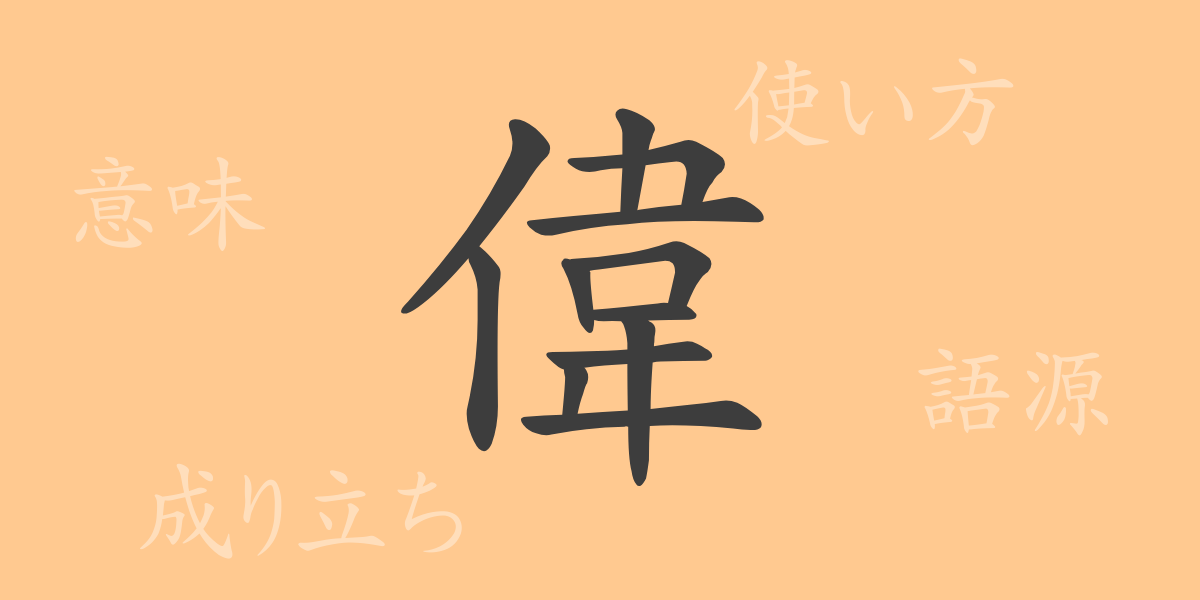“
The depth of Japanese written culture is significantly reflected in kanji, each character infused with history and meaning. This article shines a spotlight on the commonly used kanji ‘偉’ (I), exploring its origins, meanings, applications, and related phrases. We delve into the rich stories and backgrounds each character, like ‘偉’, carries within the Japanese language.
Origins of 偉 (I)
The kanji ‘偉’ has its roots in ancient Chinese scriptures and is very old. The upper part ‘韋’ originally represented a shield made from tanned leather, a pictograph, while the lower part ‘大’ means ‘large.’ Together, they combine to express meanings like ‘great’ or ‘excellent.’
Meaning and Usage of 偉
‘偉’ means ‘excellent’ or ‘impressive.’ When referring to a person, it describes someone with exceptional talents or achievements. It is also used to emphasize the grandeur or magnitude of an object or event.
Readings, Stroke Count, and Radical of 偉
Understanding the readings and components of ‘偉’ is crucial:
- Readings: The on’yomi (Sino-Japanese reading) is ‘I’, with no specific kun’yomi (native Japanese readings).
- Stroke Count: ‘偉’ consists of 12 strokes.
- Radical: The radical is ‘人’ (Hito,Ninben), relating to the human figure.
Phrases and Proverbs Using 偉
There are several idioms and phrases involving ‘偉’:
- 偉大 (Idai): Means ‘truly excellent and large,’ often used to describe a person or achievement.
- 偉業 (Igyou): Refers to a ‘remarkable achievement,’ typically one that makes history.
- 偉人 (Ijin): Denotes a ‘person of great talent and accomplishment,’ used with respect.
- 偉観 (Ikan): Describes ‘majestic and grand views,’ applicable to natural sceneries or architecture.
Summary of 偉
The kanji ‘偉’ carries ancient meanings and cultural significance, playing a vital role in the Japanese language. It is frequently used to describe outstanding people or achievements, featuring in idioms and phrases with significant historical context. Understanding the deep meanings embedded in each character like ‘偉’ enhances our appreciation of the richness of language.
“

























